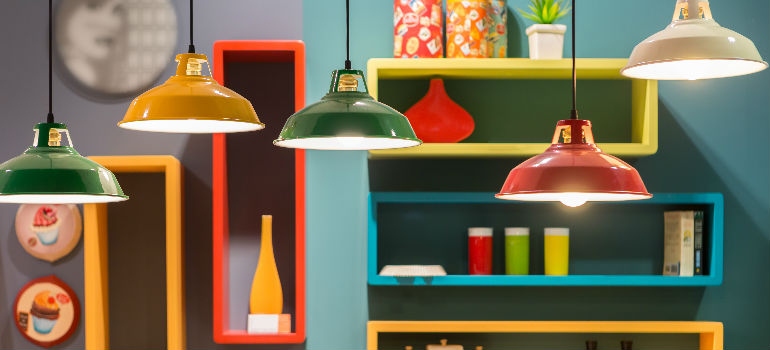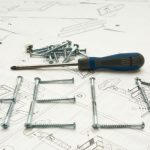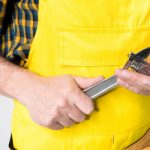
With almost a third of carbon emissions coming from our everyday household energy use, improving our homes’ energy efficiency has been always a hot topic in the UK.
Unfortunately, the efforts made to reduce energy consumption by insulating better older properties, by complying properly with new building standards, by upgrading appliances and making changes to the way we use those on a daily basis have been inconsistent, when it comes to governmental actions and individual responsibility.
With that said, a glaring conclusion comes to mind – unless you take personal accountability for your energy consumption and the way you run your home, very little can be expected to change in the near future.
And the first step you need to make is to do a home energy audit.
Table of Contents
What is a home energy audit?
Not everyone can invest in a professional evaluation of how energy-efficient is their home. But you can conduct your own investigation and confirm whether you are losing energy, if there are thermal leaks, how much you pay per month for heating and cooling your property, as well as for using electronic devices and electrical appliances.
And once, you’ve got your home energy check-up results, then come the decision to take actions and correct any issues, in order to cut down your monthly energy expenses, improve the comfort of your home and last but not least, contribute to reducing the gloomy figures of national carbon footprint.
This, in essence, is what a home energy audit involves.
Need a Handyman?
Enter your postcode to view our rates and availability in your area.
For questions about the services we offer visit our main site or you can always call us at 020 3404 4045
How to Conduct a DIY Home Energy Audit?
You don’t need any special tools and equipment to perform a fairly accurate energy audit yourself. To help you, we’ve listed the things to look for and the possible steps you can take to fix weak points so that you boost your home’s energy efficiency.
Look over your energy bills
It is not very costly to get a power and energy monitor that can read data in real time and record the measurements for later reference. This will help you see what devices around the home are the most expensive to run and prompt you to make changes to your behaviour on how you use them.
Assess your heating and hot water systems (and cooling, if you have any)
An “unprovoked” increase in your heating bills is often an indicator that your oil or gas boiler might need an upgrade or servicing. Bleeding and cleaning your radiators regularly will also aid your heating system’s efficiency.
If you rely on an air con system to heat or cool your home, cleaning/changing the filters on a regular basis will also make the devices more energy-efficient.
Check also:
Take care of insulation
The age of your property can usually give you an insight on what the chances are that it was properly insulated when built. Building standards change over time, so it is a good idea if you investigate what’s going on in your loft and behind walls.
To check the latter, you can make an inconspicuous hole and probe to see the state of the insulation, if any. Note that there have been cases even with relatively recently built houses, where the minimum loft insulation standard of 270mm has not been applied.
Update appliances
Older electrical appliances are more often than not inefficient when it comes to energy consumption. From electrical heating devices, refrigerators and dishwashers to air conditioning units, investing gradually in their replacement will save you money in the long run.
Check for draughts
Windows and doors are obvious culprits for air leaks in the home even if you have modernised them at some point in the past. Window seals and door draught excluders wear off with time, so it’s a good idea to check them now and again and replace them if necessary.
To examine other weak spots around your house, where there might be a draught, use a lit tealight candle by placing it for a moment next to joint surfaces, near corners, trim work and edges on floors, as well as around duct outlets or cables and pipes that go through walls.
An unsteady flame means that you need to take actions and insulate gaps and cracks by caulking, sealing and taping them. You can always get a professional handyman to help you out with this task.
Change light bulbs
Last but not least, switching to energy-saving light bulbs will also lower your bills and contribute to the environment. And if you are unsure about lighting up your entire house in LED, you can replace bulbs strategically, by taking into consideration different rooms’ purpose and function and their frequency of use. Call a reliable electrician to help you with the task.
Check also:
Change Small Habits to Save Energy
Your proactive quest for improving your home’s energy efficiency doesn’t stop here. You should also evaluate your day-to-day behaviour in the way you use appliances and devices and make changes that can go a long way. After all, every little helps!
Appliances
- Kettle – Fancy a cup of tea? Then, don’t boil quantities of water as if you’re hosting a tea party!
- Dishwasher – Half-loads and short cycles are always less energy-efficient than full loads. Also, do make use of the eco-button when running your dishwasher. And don’t be lazy but wash manually the three plates you used at lunchtime occasionally. It’s cheaper!
- Washing machine – If you are on an off-peak electricity tariff plan, make the habit of running your washer during bedtime. Also, remember that half loads use the same amount of electricity as full loads. In addition, different temperature settings make a difference, as well.
- Microwave – The device has its purpose, especially if you are a fan of microwave meals. But you can do a lot more when it comes to reheating food. For instance, don’t give into your teenage son’s whim to have his dinner later, after he was done playing his PS4 game. Make him join you at the table and eat together as a family.
- Dryer – Rainy England prompts many households to invest in a dryer or a combo-washer with an inbuilt drying functionality. And people can easily get into the might-as-well-use-it habit even when it’s sunny outside. But if you don’t have three teeny kiddies who require a lot of changing every day, you can improvise and dry your clothes naturally indoors on radiators and drying clothes racks.
Check also:
Lighting
- Indoors – Turning off the lights that are not in use may be obvious but many “don’t follow suit”.
- Outdoors – Invest in a garden sensor light and solar lights.
Electronic devices
- The TV doesn’t need to run all day as a background soother.
- Unplug devices when not in use. Not all but devices like computers, TV sets, toasters, coffee makers, etc. “draw” electricity even when in a standby mode.
Heating
- Apply control – Adjust thermostat settings when necessary and turn off radiator valves in spare and guest rooms.
- Insulate – Replace your lace draperies with heavy, thick curtains in the colder months to keep the heat in the room more effectively.
- Sunlight – Even on a cold blustery day, if bright and sunny, you can raise significantly the temperature in a south-facing room during most of the daylight hours by opening the curtains.
So there you have it, a simple guide on how to conduct a DIY home energy audit and what energy-saving measures you can take to make a difference at home and to the environment. And for those with an even greater Nature-conscious mindset, there’s always the plethora of renewable energy inventions and devices that you can look into.
Image Source: WichitS/shutterstock.com




The important thing to remember about energy saving measures in the home is that they are always win-win situations; not only does putting a brick in your toilet (for example) reduce the amount of water you use, but that has a direct impact on the environment and reduces humanity’s reliance on the world’s natural resources. In a lot of these situations there’s no reason NOT to put these into practice as they have multiple positive repercussions.
These are all great ideas! LED light bulbs can save a lot of money. It’s also a good idea to ensure your radiators are bled regularly and you get your boiler serviced at least once a year.
Thank you for sharing a great article. An energy audit is very essential to keep an eye on energy consumptions. We use many electronic appliances at home daily. And, I agree with you, changes in small habits can help us to save on energy bills.